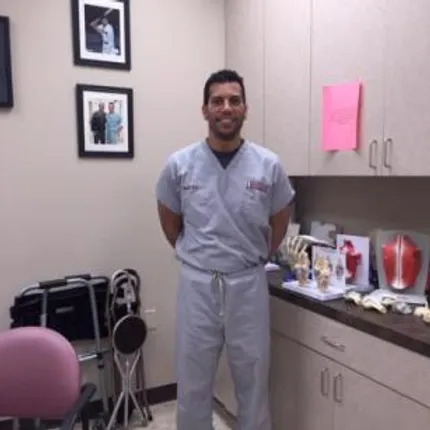The Psychological Factors Behind Sports Recovery: Insights from Dr. James Morales
The Psychological Factors Behind Sports Recovery: Insights from Dr. James Morales
Blog Article

When it comes to activities healing, a lot of people think of bodily solutions: sleep, ice, bodily treatment, and medication. Nevertheless, an essential, usually neglected aspect of recovery could be the mental side. Dr. James Morales New Jersey, a well-known sports medication expert, stresses that psychological well-being plays an equally important position in healing and performance. In this informative article, we discover the text between emotional health and running recovery, pulling on Dr. James Moralesextensive knowledge dealing with players across a variety of disciplines.
The Mind-Body Relationship in Activities Healing
Dr. Morales describes that your body and brain are intricately linked, and one cannot completely recover without the other. A player who's emotionally distressed, anxious, or frustrated might find it harder to recoup from an accident or accomplish at their best. Intellectual stress may induce physiological reactions, such as increased muscle strain and paid off body flow, which can slow the therapeutic process. Alternatively, positive mental wellness may increase healing by marketing peace, reducing infection, and improving over all physical health.
The Role of Intellectual Resilience
Among the most important psychological characteristics for players recovering from injuries is intellectual resilience. Dr. Morales features that resilience—the ability to bounce right back from problems and stay targeted despite adversity—is key to a successful recovery. Athletes with strong emotional resilience are more likely to stick for their recovery options, conform with their rehabilitation workouts, and maintain a confident outlook, all of which contribute to faster healing and greater efficiency if they return with their sport.
Visualization and Good Thinking
Dr. Morales usually includes mental education practices such as for example visualization in to his recovery plans. Players are taught to psychologically rehearse effective activities and recovery scenarios. Studies reveal that visualization can stimulate exactly the same neural pathways in the brain as bodily action, which supports the human body to treat and make for the go back to action. Good considering is another strong tool. By focusing on what they are able to do as opposed to what they can't, players are more likely to stay inspired, focused, and determined for their rehabilitation.
Overcoming Intellectual Barriers in Harm Recovery
Damage recovery can be irritating for players, especially people who rely on their physical talents for success. Dr. Morales emphasizes the importance of handling emotional barriers such as anxiety about re-injury, disappointment, and lack of confidence. Players frequently concern yourself with time for their game following an accident, fearing they might not be able to accomplish at their previous level or may reinjure themselves. Addressing these considerations through treatment, rest methods, and advice from coaches and health practitioners might help athletes regain their assurance and intellectual clarity.
The Energy of Cultural Help
Eventually, Dr. Morales challenges the significance of cultural help throughout recovery. Bordering oneself with positive, stimulating friends, household, and teammates provides emotional power, reduce emotions of solitude, and increase motivation. Dr. Morales usually encourages his individuals to lean on the support process and take part in group activities or mental health workshops included in their recovery process. Social communications and class help help athletes remain psychologically involved within their recovery and keep their spirits large because they perform toward a full reunite for their sport.
To conclude, the psychological area of sports recovery is equally as essential whilst the physical. Dr. James Morales teaches athletes that to recover completely, they have to address both their human anatomy and mind. By fostering mental resilience, training visualization, overcoming emotional barriers, and participating in social help, athletes can enhance their healing method and return with their activities tougher and more targeted than actually before. As Dr. Morales claims, a healthy mind is simply as crucial as a healthier human body in achieving maximum running performance. Report this page